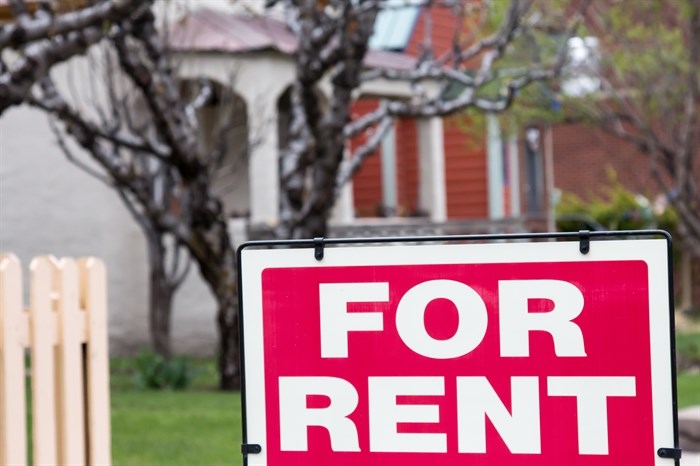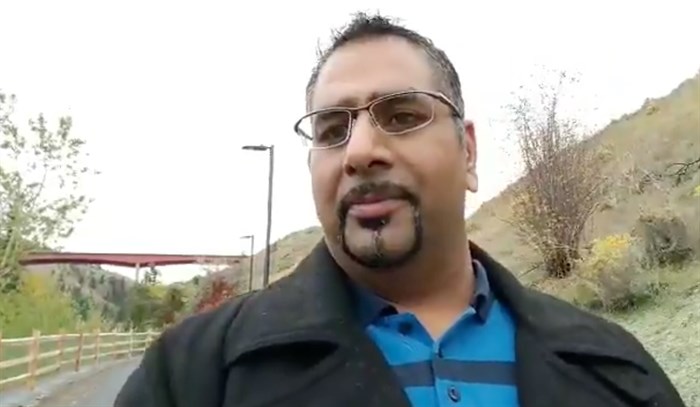
Image Credit: ADOBE STOCK
October 11, 2018 - 7:00 PM
KAMLOOPS - The Oct. 20 municipal election is fast approaching and the topic of affordable housing in Kamloops is front and centre in the election campaign.
It's not just an issue for renters or new home buyers, it affects businesses trying to recruit workers as well.
We asked the question: How would you help increase the affordability and availability of home rentals in Kamloops?
Unsurprisingly, the majority of the candidates who responded to our survey agree there is a strong need for more affordable housing options, but many of them have different ideas about how to make it happen. Immediately below, we pulled out their most concise answer but their full responses are at the bottom.
We see some really good ideas in here, what do you think? Let us know in the comments below.
Jennifer D. Adams: Cutting red tape and decreasing costs for applications for variance will help bring forward those who are looking to participate more effectively in the inspected and legal rental market. Densification is key and I believe there is a powerful tool available to us if we had it, Inclusionary Zoning.
Denis Walsh: I would make it easier to apply for new secondary suite or carriage house is designated high-density areas. The city could also create a special re-bite property tax exemption (RTE) to encourage developers to build and include a percentage of rental suites in multi-housing projects.

Jimmy Johal
Image Credit: SUBMITTED/Facebook
Jimmy Johal: The simplest, fastest, and cheapest way for us to solve this problem is to get the private sector to build more. Every new subdivision should have a certain percentage of properties zoned for legal suites (like Sun Rivers currently does). Older homes should be able to apply for a legal suite as long as safety and parking concerns are taken care of.
Corally Delwo: One of the biggest things we can do is remove the red tape when applying to have rental units in homes. We need the ability to supply housing to families and as such I think it is important that city council and the province provide incentives and tax breaks for developers and investors.
Nicholas Adams: Making legal secondary suites easier to create would increase house affordability, letting buyers offset the cost of their home with a rental suite. This is especially important for first-time homebuyers.
Mike O'Reilly: The number one way to allow our citizens to help with the affordability crisis is to make it easier to legalize basement suites. Legal suites will help new homeowners to be able to afford housing, keep rental rates down, and help with densification. Kamloops must be affordable for everyone.
Dennis Giesbrecht: I believe two things can help the rental affordability issues. The first is large-scale TRU housing construction (underway). This will free up units for locals. The second initiative I would like to see is wide scale licensing of secondary suites. A minimal fee and a focus on safety for the units.
Gerald Kenyon Watson: Economics. Unaffordable housing is a reflection of demand outpacing supply. The city needs to remove barriers and bottlenecks to getting more housing available for purchase to increase the supply.
Arjun Singh: I look forward to a discussion on the potential for more legal secondary suites in Kamloops. I also encourage innovative smaller footprint units, such as micro-suites.
Sadie Hunter: I’d also promote innovative ideas like home sharing – where the homeowner, usually a senior, offers reduced rent for a room in their home in exchange for small chores and companionship. This idea is getting attention in small towns and cities across the country because it’s a socially conscious solution to both loneliness and soaring housing costs and connects students in need of low-cost housing with seniors who have a spare room and who could benefit from a bit of extra support and company.

Stephen Karpuk
Image Credit: SUBMITTED/Youtube
Stephen Karpuk: Let’s look at some zoning flexibility. Increase the number of legal suites and carriage suites, make sure homes are maximized for energy efficiency to reduce utility costs and zone more affordable smaller homes.
Dale Bass: Offer incentives to developers to allocate a portion of their developments to those on low incomes. Perhaps reduced DCCs or other tax breaks would work.
William James Turnbull (mayoral candidate): Support & Streamline development. Perhaps reduce Development Cost Charges. Advocate for a sliding scale rent subsidy. Take a look at secondary suite requirements. Seek & Accept Government Funding.
Alison Klie: Expediting the paperwork side of the process so that building can begin as quickly and safely as possible is a good place to start. We can also look into increasing the percentage of rental in new construction and replacing older apartment buildings that are at the end of their lifespan. Once projects are approved we should be encouraging the building companies to hire locally, not only will our rental units not be filled with out of town construction workers but the added income will help more of our citizens to be able to afford their own homes.
Ken Christian (mayoral candidate): We have been very successful this past year in getting investment in rental properties in Kamloops. There are four new builds currently under construction and two more in the permitting process. We are also working closely with TRU on student housing initiatives that will free up more rental space in other areas of the city.
Bill Sarai: Give the developers incentives to build duplexes and multi-family housing. The builders are the ones we need to reach and get on board if we want to see any positive change for affordable housing for first-time homebuyers, young families, etc.
Kathy Sinclair: We need to ensure housing along the entire continuum stays affordable, from supported rental housing for those on fixed incomes to first-time home buyers. We also need to increase the supply, which means working with developers to maintain and possibly increase tax incentives, making land available where possible, and reducing red tape.
Candidates who did not respond:
Donovan Cavers
Chris Bose
Shawn Harnett
Dieter Dudy
Ray Dhaliwal
Caroline King
Full responses to the question: How would you help increase the affordability and availability of home rentals in Kamloops?
Jennifer D. Adams: Cutting red tape and decreasing costs for applications for variance will help bring forward those who are looking to participate more effectively in the inspected and legal rental market. Densification is key and I believe there is a powerful tool available to us if we had it, Inclusionary Zoning. This zoning tool is used in communities to guarantee that there are either units set aside in larger development that are earmarked for under market units or a financial commitment to contribute to a social housing fund that can be used for acquisition and partnerships with the provincial government, the federal government and social housing providers
Denis Walsh: I would make it easier to apply for new secondary suite or carriage house is designated high-density areas. The city could also create a special re-bite property tax exemption (RTE) to encourage developers to build and include a percentage of rental suites in multi-housing projects."
Jimmy Johal: The city needs more housing supply. The simplest, fastest, and cheapest way for us to solve this problem is to get the private sector to build more. Every new subdivision should have a certain percentage of properties zoned for legal suites (like Sun Rivers currently does). Older homes should be able to apply for a legal suite as long as safety and parking concerns are taken care of. Our zoning should encourage more laneway and mini homes in older neighbourhoods with alleyways and should allow for higher density buildings, wherever practical. These changes would cost the taxpayers absolutely nothing.
Corally Delwo: One of the biggest things we can do is remove the red tape when applying to have rental units in homes. We need the ability to supply housing to families and as such, I think it is important that city council and the province provide incentives and tax breaks for developers and investors. We need to remove the stigma that Kamloops is anti-business and anti-development.
Sadie Hunter: Allowing carriage houses and legalizing secondary suites would help alleviate part of the demand. I’d also promote innovative ideas like home sharing – where the homeowner, usually a senior, offers reduced rent for a room in their home in exchange for small chores and companionship. This idea is getting attention in small towns and cities across the country because it’s a socially conscious solution to both loneliness and soaring housing costs and connects students in need of low-cost housing with seniors who have a spare room and who could benefit from a bit of extra support and company.
Researchers indicates these shared-living programs could help address two major social issues: housing affordability and caring for an aging population. Both partners could benefit from a sense of shared community/reduced isolation.
Nicholas Adams: Making legal secondary suites easier to create would increase house affordability, letting buyers offset the cost of their home with a rental suite. This is especially important for first-time homebuyers. Secondary suites will become a more affordable rental option as additional units become available. By making compliance easier and more economical, we can stem the proliferation of illegal suites in our community. Legal suites are better for protecting the tenant, landlord and surrounding neighborhood.
Mike O'Reilly: A lot of citizens in Kamloops want to help with housing affordability. The number one way to allow our citizens to help with the affordability crisis is to make it easier to legalize basement suites. Legal suites will help new home owners to be able to afford housing, keep rental rates down, and help with densification. Kamloops Must be affordable for everyone.
Dennis Giesbrecht: I believe 2 things can help the rental affordability issues. The first is large-scale TRU housing construction (underway). This will free up units for locals. The second initiative I would like to see is wide scale licencing of secondary suites. A minimal fee and a focus on safety for the units.
Dale Bass: Offer incentives to developers to allocate a portion of their developments to those on low incomes. Perhaps reduced DCCs or other tax breaks would work.
Gerald Kenyon Watson: Economics. Unaffordable housing is a reflection of demand outpacing supply. The city needs to remove barriers and bottlenecks to getting more housing available for purchase to increase the supply.
William James Turnbull: Support & Streamline development. Perhaps reduce Development Cost Charges. Advocate for a sliding scale rent subsidy. Take a look at secondary suite requirements. Seek & Accept Government Funding.
Alison Klie: I support the Kam Plan and would like to see more high density living throughout the Kamloops core. Expediting the paperwork side of the process so that building can begin as quickly and safely as possible is a good place to start. We can also look into increasing the percentage of rental in new construction and replacing older apartment buildings that are at the end of their life span. Once projects are approved we should be encouraging the building companies to hire locally, not only will our rental units not be filled with out of town construction workers but the added income will help more of our citizens to be able to afford their own homes. If more affordable housing is available renters can afford to buy and with less locals needing to rent more students and other types of tenants will be able to find units for more competitive rates.
Arjun Singh: I look forward to a discussion on the potential for more legal secondary suites in Kamloops. I also encourage innovative smaller footprint units, such as micro-suites.
Stephen Karpuk: Let’s look at some zoning flexibility. Increase the number of legal suites and carriage suites, make sure homes are maximized for energy efficiency to reduce utility costs and zone more affordable smaller homes.
Ken Christian: We have been very successful this past year in getting investment in rental properties in Kamloops. There are four new builds currently under construction and two more in the permitting process. We are also working closely with TRU on student housing initiatives that will free up more rental space in other areas of the city.
Bill Sarai: Promote more suites in new homes, grandfather in older suites with an annual fee, similar to Kelowna. Give the developers incentives to build duplexes and multi-family housing, The builders are the ones we need to reach and get on board if we want to see any positive change for affordable housing for first-time homebuyers, young families, etc.
Kathy Sinclair: Housing is still more affordable, relatively speaking, in Kamloops than in many other BC cities. But that’s changing. We don’t want to see Kamloops become another Vancouver. We need to ensure housing along the entire continuum stays affordable, from supported rental housing for those on fixed incomes to first-time home buyers. We also need to increase the supply, which means working with developers to maintain and possibly increase tax incentives, making land available where possible, and reducing red tape. The motion I brought forward last June, for staff to look into allowing secondary suites in all residential neighbourhoods, could help to increase the rental housing supply, which could be particularly important for students, seniors and young professionals. I understand there are some concerns around this, and I look forward to seeing the report back from staff in early 2019, and to extensive public consultation. On a more systemic level, I’d like to see Council help alter the unfortunate stigma against renters. Most of us were renters at one point, some of us are currently, and we need to accept that renting is a valid lifestyle choice for many. I believe there are more ways to increase density such as encouraging duplexes and fourplexes that won’t drastically alter neighbourhoods the way that large condos and apartment buildings will -- though those need to happen, too.
To contact a reporter for this story, email Karen Edwards or call (250) 819-3723 or email the editor. You can also submit photos, videos or news tips to the newsroom and be entered to win a monthly prize draw.
We welcome your comments and opinions on our stories but play nice. We won't censor or delete comments unless they contain off-topic statements or links, unnecessary vulgarity, false facts, spam or obviously fake profiles. If you have any concerns about what you see in comments, email the editor in the link above.
News from © iNFOnews, 2018